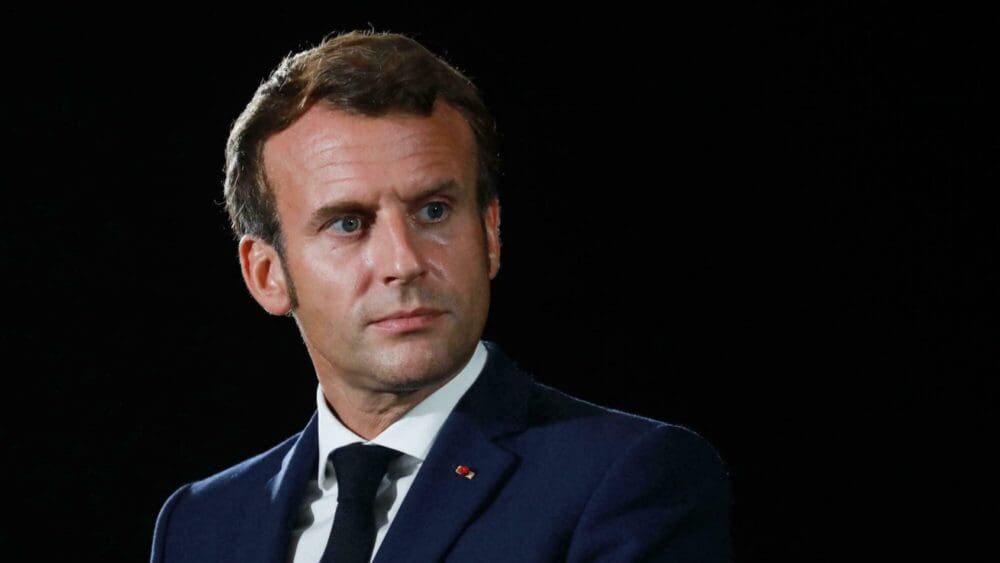After two days of consultations with leading politicians from all political parties represented in the National Assembly, the – partial – verdict is now in. Emmanuel Macron has still not found his prime minister, but has categorically ruled out forming a government with the left-wing coalition of the New Popular Front (NFP).
The disproportion between the NFP’s share of the vote and the push to exclude it from power shows the president’s disregard for his votes. This, in turn, would harm Macron, and so the search for allies has begun. New consultations have begun, in a climate of high tension and growing discontent.
The first phase of consultations ended on Monday evening, August 26. Macron took time on Friday, August 23, to meet with representatives of the left, and on August 26 he met with the Rassemblement National (RN) and its allies.
Sensing over the weekend that the stalemate was inevitable and the prospect of leading a new government was becoming increasingly remote, Jean-Luc Mélenchon, leader of the controversial La France Insoumise (LFI) party, put forward a conciliatory proposal: he agreed that a government should be formed in the colours of the NFP but without his party – a tactic to manage the mistrust in public opinion that is becoming increasingly hostile towards him. But the proposal was not enough to change Macron’s position.
In a statement late on Monday, August 26, the Élysée Palace said it was categorically opposed to the appointment of an NFP government – regardless of the presence or absence of the LFI. The problem is not so much the involvement of the LFI, but the program, which is considered dangerous and unworkable. As soon as an NFP government appears before the deputies, it would immediately be overthrown by the right and the center. Macron wants to avoid this scenario at all costs in order to preserve “institutional stability.”
A government based exclusively on the programme and parties proposed by the alliance with the most deputies, the New Popular Front, would be immediately rejected by all the other groups represented in the National Assembly. Such a government would therefore immediately have a majority of over 350 deputies against it, which would make it practically incapable of acting. Given the views of the political leaders interviewed, this option is not to be pursued given the institutional stability of our country.
Macron therefore announced that he intends to resume consultations from Tuesday, August 27, but in a more restricted format. The RN, LR and LFI parties were not invited. The NFP’s left-wing partners outside the LFI (the Socialists, Communists and Greens) refused to form a coalition outside their alliance and declined the invitation. As a result, they now find themselves in a difficult position with President Macron. de facto outside of any negotiations. By ruling out compromises in solidarity with the LFI, the left has ensured that those invited to these new meetings will anticipate the shape of the future government coalition, since they are essentially centre and centre-right parties.
Since the publication of the Elysée communiqué, the French left has been in uproar, complaining (with some malice) of democratic stagnation. The French constitution does not require the president to appoint a prime minister from the largest group of deputies in the National Assembly, especially when its leadership is fragile and it is made up of a motley coalition. Moreover, nowhere else can a minority bloc – even if it is electorally victorious – hope to remain in power unless it tries to broaden its base by bringing together people of good will.
At the very least, the Socialists and the Greens should consider alternative coalitions, but they have committed themselves to the unity of the left by putting their NFP coalition on a pedestal, like a Ming vase that they cannot scratch. Therefore, they refuse to enter into dialogue, thus finding themselves at an impasse. LFI confirmed in a press release that its deputies would submit a motion to impeach the president to the Bureau of the National Assembly “in accordance with Article 68 of the Constitution”.
The dissatisfied are everywhere. When the left shows its anger, others get even more pity. The RN and its allies are completely invisible in these discussions. In its press release, the Élysée did not mention the RN and its almost 11 million voters even once, although it justified its opposition to an NFP government with the risk of an immediate fall – which would only be possible with the votes of RN MPs.
Marine Le Pen, the leader of the RN group in parliament, tried to turn this into a strength. After her meeting with Macron, she told the press:
The French have been able to watch the ball of cynics and hypocrites dancing all summer long. They have elected each other and then attacked each other. We are in fact the only opposition to this one party, the only opposition to chaos.
It may be appropriate to play things down. It is not unusual in other countries to take a long time to form a stable government by finding a viable coalition. It is true that this was never the case in France under the Fifth Republic. And it is quite easy for Emmanuel Macron to hide behind the preservation of so-called “institutional stability”: he is the first to have undermined it by opting to dissolve the government the day after the European elections.
The parliament and the government are slowly but surely moving towards a soft, soulless centre-right party from which, unfortunately, nothing can be expected.
Eric Ciotti, the current leader of the LR, which is now allied with the RN, reminded Emmanuel Macron that the only relevant and solid coalition is that of the Union of the Right, provided that all the forces emerging from the LR – which is currently divided into two factions, one allied with the RN, the other in opposition to it – manage to play on the same side. But for the moment, this is unthinkable. The LR, hostile to the RN, and its leader Laurent Wauquiez, are calling for a fundamental restructuring of the right.
Paradoxically, in the new constellation that is emerging, which excludes the left because of its self-inflicted injuries, the RN will play a decisive role, being able to decide whether or not to censure the next government, at a time when people are desperately trying to deny its existence and obstruct its representatives.




